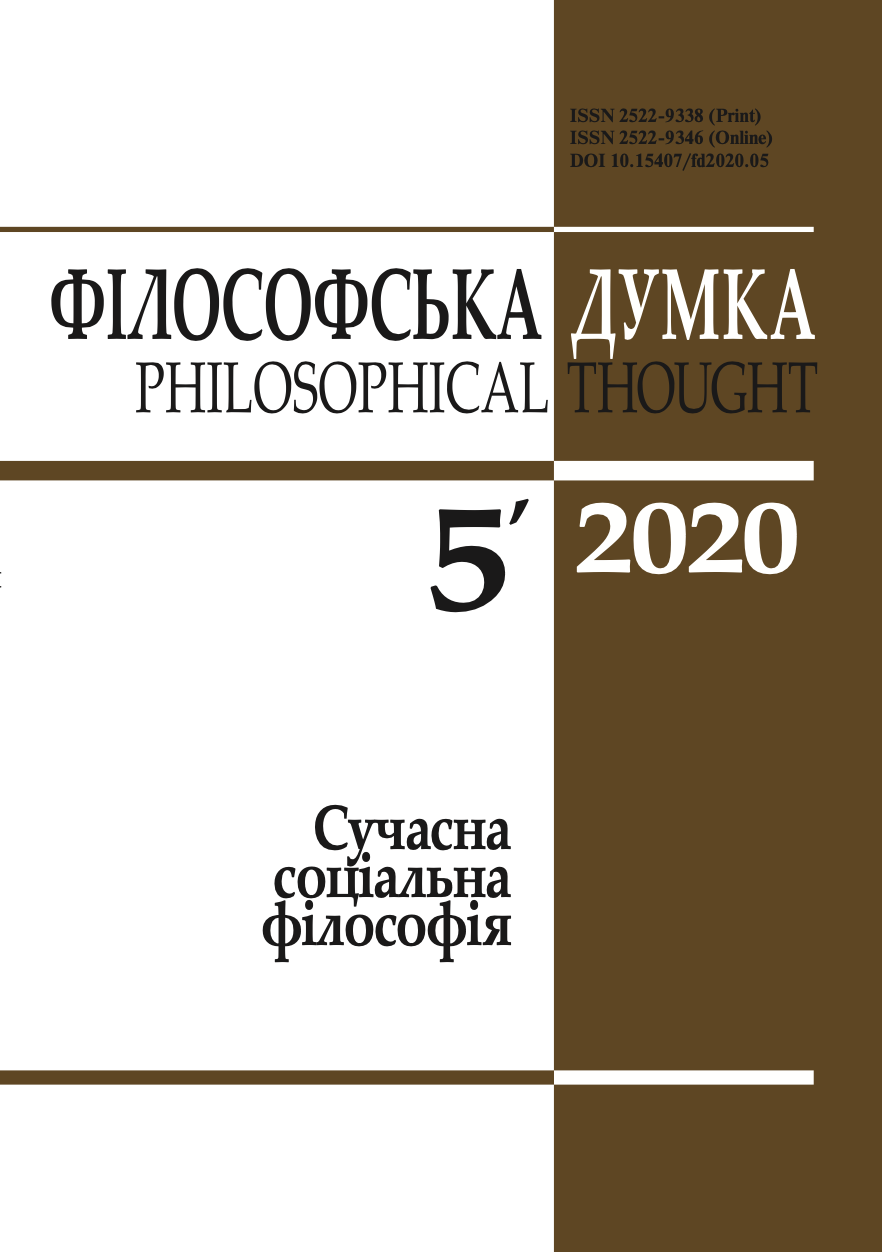CIVIL SOCIETY AS DRIVER IN DEMOCRACY DISCOURSE OF ADULT LEARNING POLICY IN UKRAINE
DOI:
https://doi.org/10.15407/fd2020.05.041Keywords:
Civil Society, Adult Learning Policy in Ukraine, AdvocacyAbstract
The article is focused on some aspects of development adult learning and education policy in Ukraine from stakeholders` perspective, and active role of the Ukrainian civil society in this discourse. This was facilitated by conducting analytical research and further advocacy activities on the protection and representation of interests in Ukraine in 2018-2019. Adult learning and education following the change in UNESCO’s terminology from «adult education» to «adult learning and education» (abbreviated - ALE), is interpreted as a permanent activity aimed at acquiring, recognizing and ap- plying key skills. Acquisition of new skills, abilities and knowledge by adults usually occurs after they receive basic education and enter the labour market. In European practice, this covers formal, non-formal and informal forms of adult learning. Stakeholders were involved in the analytical re- search through a survey of experts; participation in a practical seminar on peer review workshop, which was held in the format of a progress meeting to present the Policy Research Report and discuss the preliminary results; virtual discussion of analytical documents. Usually, adult learning policy pro- motes social well-being and integration, employment and active civil participation. Ukraine lack of consolidate active state adult learning policy during the whole period of its independence since 1991. The problem-solving options proposed in the research and validated by stakeholders are presented in this article. The article will be interesting for social philosophy, educational & learning academic and non-academic researchers, policy-makers and practitioners.
References
REFERENCES
European Union (2011). Official Journal of the European Union: Council Resolution on a renewed European agenda for adult learning. Retrieved from: http://eur-lex.europa.eu/legal-content/ EN/TXT/?uri=uriserv:OJ.C_.2011.372.01.0001.01.ENG
European Commission (2015). Study on the analysis of adult learning policies and their effective- ness in Europe. In: An in-depth analysis of adult learning policies and their effectiveness in Europe, Directorate-General for Employment, Social Affairs and Inclusion Directorate C (Europe 2020: Employment Policies), Unit 5 (Vocational Training and Adult Education).
UNESCO (2015). UNESCO Recommendation on Adult Learning and Education. UNESCO Institute for Lifelong Learning (UIL), Hamburg, UIL. Retrieved from: http://uil.unesco. org/adult-education/unesco-recommendation/unesco-recommendation-adult-learn- ing-and-education-2015
Lazorenko, O., Kolishko, R. (2018). Policy Research Report “What Should Be the Adult Learning Policy in Ukraine?”. Kyiv: Civil Sinergy Project. [In Ukrainian]. Retrieved from: http://lpw.org. ua/ua/adult_education/researches_on_AE/Adult_Learnng_2018/ and https://www.civic- synergy.org.ua/analytics/yakoyu-maye-buty-polityka-navchannya-doroslyh-v-ukrayini/
Peer Learning Workshop “Adult Learning Policy as Pathway to Implement European Integration of Ukraine & SDG #4”. Kyiv, Ukraine 24 September 2018. Retrieved from: http://lpw.org.ua/ en/news/?pid=684 and http://www.act4sdgs.org/partner/lpw2018
Lazorenko, O., Kolishko, R. (2019). Policy Research Report Brief. What adult learning policy should be in Ukraine? Kyiv: Civil Sinergy Project. Retrieved from: https://www.civic-synergy. org.ua/en/analytics/what-adult-learning-policy-should-be-in-ukraine/
League of Professional Women (2019). Para 89 - HLPF 2019/ Inputs to the High-level Political Forum on Sustainable Development. USA, New York. Retrieved from: https://sustainabledevelopment. un.org/index.php?page=view&type=30022&nr=2250&menu=3170
Downloads
-
PDF
Downloads: 224
Published
How to Cite
Issue
Section
License
Authors who publish with this journal agree to the following terms:
- Authors retain copyright and grant the journal right of first publication.
- Authors are able to enter into separate, additional contractual arrangements for the non-exclusive distribution of the journal's published version of the work (e.g., post it to an institutional repository or publish it in a book), with an acknowledgement of its initial publication in this journal.
- Authors are permitted and encouraged to post their work online (e.g., in institutional repositories or on their website) prior to and during the submission process, as it can lead to productive exchanges, as well as earlier and greater citation of published work (See The Effect of Open Access).


